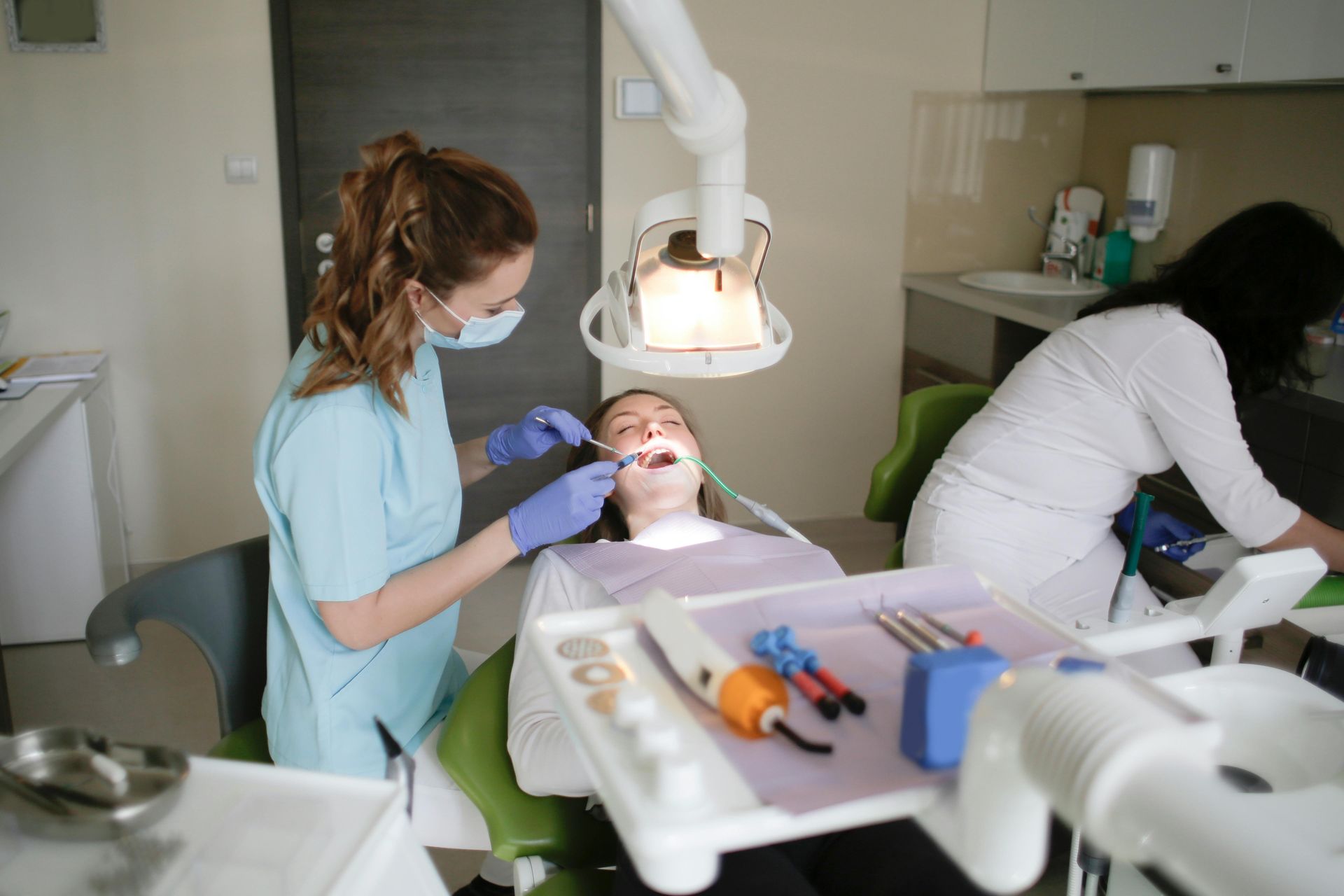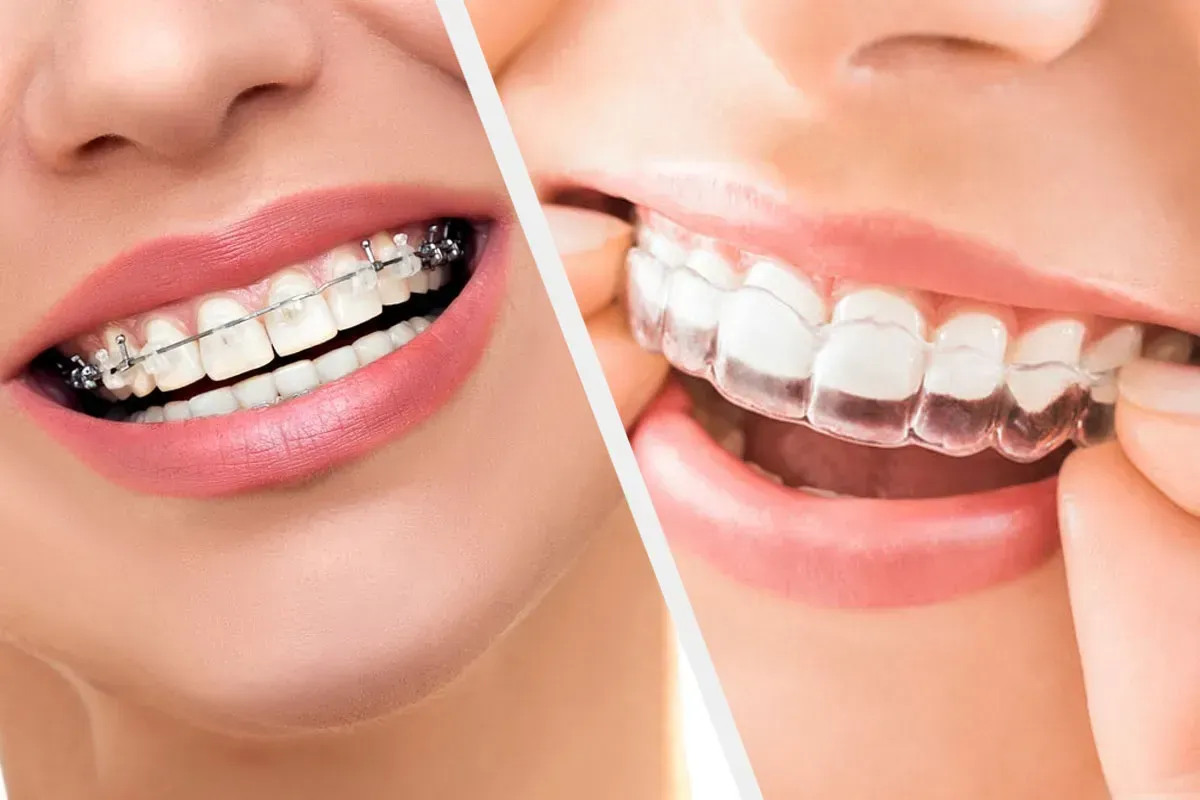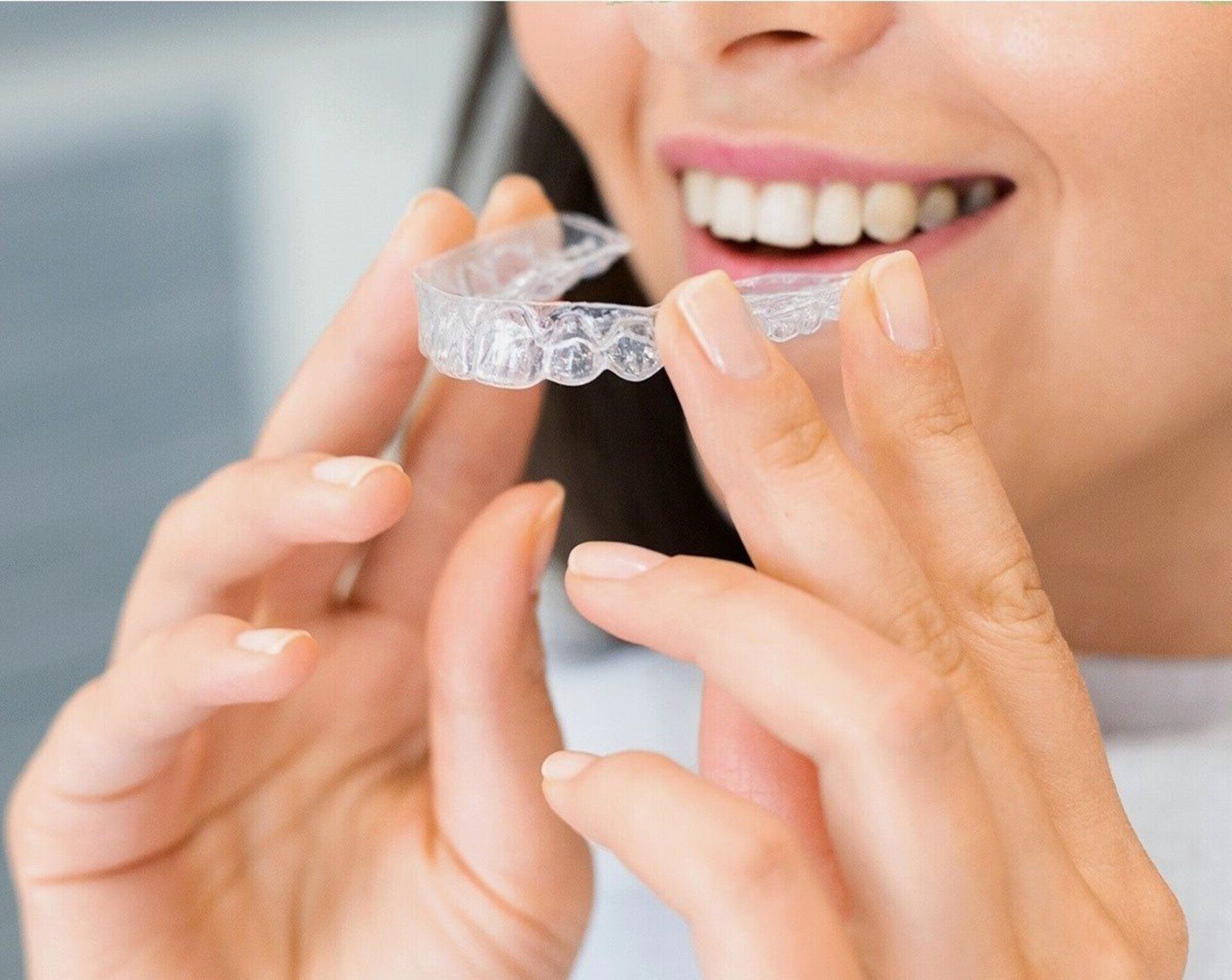Helping Kids Conquer Their Dentist Fears: Effective Approaches
Understanding Childhood Dental Anxiety
Dental anxiety in children is a prevalent issue that can make dental visits challenging for both parents and healthcare providers. This anxiety can range from mild apprehension to significant fear, affecting a child's oral health and future attitude toward dental care. Acknowledging and addressing this anxiety is crucial for fostering a lifelong positive relationship with oral health and dental practitioners.
Recognize Common Causes of Dental Anxiety
Several factors contribute to dental anxiety in children. Understanding these can help parents and pediatric dentists create a more accommodating and reassuring experience:
- Fear of the Unknown: Children often fear what they do not understand. The unfamiliar dental setting, including the dental chair and equipment, can appear intimidating.
- Negative Past Experiences: A previous unpleasant dental appointment can create lasting fears, making subsequent visits more stressful.
- Parental Anxiety Transfer: If parents exhibit fear or anxiety about dental visits, their children might adopt the same feelings.
- Pain and Discomfort Concerns: Stories of pain associated with dental treatments can heighten anxiety, even if the child has never experienced it firsthand.
- Sensory Sensitivities: The sounds, smells, and bright lights found in a dental clinic can be overwhelming for some children, particularly those with sensory processing sensitivities.
Understand the Impact of Dental Anxiety on Children
The ramifications of dental anxiety extend beyond just an unpleasant dental experience. It can impact children's oral and overall health significantly:
- Avoidance of Dental Care: When anxiety is left unaddressed, children may begin to avoid dental appointments entirely, leading to poor oral hygiene and oral health issues like cavities and gum disease.
- Increased Dental Treatment Needs: Avoidance often results in more complex dental issues that require extensive treatment, perpetuating the cycle of fear.
- Impact on Mental Health: Persistent dental anxiety can contribute to broader anxiety disorders, affecting a child's mental health and well-being.
- Interference with School and Social Activities: Dental phobia can cause children to miss school days due to dental appointments or untreated oral health issues, affecting their academic performance and social interactions.
- Reduced Self-Esteem: Concerns over oral health and appearance may lead to lower self-esteem and reluctance to engage in smiling or socializing.
Addressing this anxiety requires a collaborative approach, incorporating positive dental experiences, professional guidance from pediatric dentists, and, if necessary, consultation with a child psychologist or mental health professional. By tackling dental fears early on, children can enjoy a healthier dental journey and a positive outlook on maintaining a healthy smile.
Address any fears or misconceptions directly
Addressing fears or misconceptions directly is crucial for helping children overcome their anxiety about dental visits. Here are some steps to make the process smoother:
- Open Communication: Encourage your child to express any dental fears or misconceptions. Listening without judgment reassures them that their feelings are valid.
- Education: Use age-appropriate language to explain what happens during a dental appointment. Describe the dental equipment and the role of a pediatric dentist to demystify the dental setting.
- Positive Reinforcement: Share stories or watch videos of kids having positive experiences at the dentist. Highlight the benefits of oral health and healthy teeth.
- Role-playing: Pretend to be at the dental clinic by role-playing with your child. Take turns being the patient and the dentist to familiarize them with the dental chair and common procedures.
- Involvement: Let your child bring a favorite toy or book to their dentist visit. It provides comfort and makes the dental experience more personal.
Creating a supportive environment can transform dental appointments into successful visits. It's essential to address dental fears directly, promoting a healthy smile and strong oral hygiene habits.
Introduce dental visits at an early age
Introducing dental visits early in a child's life plays a crucial role in shaping a positive attitude towards oral health care. It is recommended that children have their first dentist appointment by their first birthday or within six months after their first tooth emerges. Early exposure to the dental clinic and pediatric dentists can prevent the development of dental anxiety and phobia in kids. Starting visits early not only helps familiarize children with the dental setting and dental equipment but also establishes a routine that underscores the importance of oral hygiene and healthy teeth.
Prepare the Child for the Visit
Preparation is key to ensuring a successful visit. Start by scheduling a dental appointment when your child is likely to be well-rested and cooperative. Before the visit, you can reduce potential fear by reading books about dental care or watching cartoons that feature characters going to the dentist. Consider creating a checklist that includes:
- Choosing a comfortable outfit for the day
- Packing a favorite toy or book for comfort
- Talking through any fears or concerns
This approach will help children feel more prepared and less anxious, turning dentist visits into positive experiences.
Explain Dental Health Openly
Open discussions about dental health can debunk myths and encourage a healthy mindset towards oral care. Use simple, age-appropriate language to talk about how visiting the dentist helps keep teeth healthy and strong. Discuss the role of good oral hygiene habits, like brushing and flossing, and how they contribute to a healthy smile. You can involve your child by discussing topics like:
- Importance of regular dental check-ups
- Effects of thumb sucking on dental health
- How healthy teeth support overall well-being
By understanding the significance of dental health, kids are more likely to embrace dental care as a routine part of their lives.
Discuss What to Expect During the Appointment
Before the dental appointment, it’s beneficial to explain what will happen during the visit in an approachable manner. Describe the step-by-step process, from meeting the dental staff to sitting in the dental chair. Highlight that the dentist might count their teeth, use special mirrors, or polish their teeth to keep them sparkly. Providing familiar terms and ideas helps alleviate fear of the unknown and reduces panic attacks.
- The dentist may talk about healthy snacks and drinks
- They will check for cavities and clean their teeth
- Demonstrate brushing techniques if needed
Encouraging questions and discussing any unfamiliar aspects of the dental treatment can ease stress and create a more trusting environment. If persistent anxiety is present, consulting a child psychologist or mental health professional may provide additional support in overcoming dental fears.
Select a paediatric dentist
Choosing a paediatric dentist is crucial for ensuring positive dental experiences for your child. Here are some essential tips to help you make an informed decision:
- Check Qualifications: Verify that the dentist is specifically trained in pediatric dentistry. They should possess additional qualifications in managing children’s dental health and addressing dental fears.
- Assess Experience: Look for a dentist with experience in handling kids, especially those with dental anxiety or phobia. An experienced pediatric dentist can transform a potentially daunting dental visit into a successful visit.
- Evaluate the Environment: Visit the dental clinic to examine if it is child-friendly. A welcoming dental setting with colorful decorations and engaging dental equipment can ease a child’s anxiety.
- Inquire about Techniques: Ask about techniques used to manage dental anxiety. Techniques like positive reinforcement and distraction can contribute to a more relaxed dental appointment.
- Check Reviews: Read testimonials or seek recommendations from other parents. Positive experiences shared by others can be reassuring.
- Location Matters: Choose a dental clinic that is conveniently located to avoid adding travel stress to the experience.
By selecting the right pediatric dentist, you can help your child maintain healthy teeth and a healthy smile while minimizing dental fears.
Incorporate positive reinforcement
Incorporating positive reinforcement can significantly help kids overcome their fear of the dentist. Pediatric dentists recommend using rewards and praise to create positive associations with dental visits. This strategy encourages children to view dental appointments positively, reducing dental anxiety and promoting healthy oral care habits.
Tips for Using Positive Reinforcement:
- Praise and Encouragement: Compliment your child on their bravery and cooperation during a dental visit. Positive verbal feedback can boost their confidence and reduce fear.
- Reward System: Establish a reward system where each successful visit earns a small prize or a fun experience, like a trip to the park.
- Sticker Charts: Visual aids, such as sticker charts, can motivate children to look forward to their next dental appointment by offering a tangible sense of accomplishment.
- Choose Special Treats: Offer a favorite, tooth-friendly snack after the dental experience as a comforting closure.
The goal is to create positive experiences that encourage kids to maintain regular dental care, leading to healthy teeth and a healthy smile. Reinforcing positive behavior can transform a child's perception of the dental setting, making future visits less daunting.
Use visuals and demonstrations
Utilizing visuals and demonstrations can significantly ease kids' dental anxiety and phobia. Introducing young ones to the dentist with lively visuals and hands-on experiences can transform dental visits into positive experiences. Pediatric dentists often employ storybooks featuring friendly dentist characters or videos showing animated dental treatments. These resources demystify the dental clinic environment and help children understand dental equipment and procedures in a non-threatening way.
Additionally, demonstrations can be incredibly effective. For instance, a dental hygienist might show how dental tools work on a toy or a model of teeth. This can reduce fear of the unknown and make the dental chair less intimidating. Parents can also play a role by using at-home demonstrations, like practicing oral hygiene with a fun routine that mimics a dental appointment.
Here's a simple list to incorporate this strategy:
- Use Storybooks: Select books about dental visits to explain procedures.
- Watch Videos: Find kid-friendly videos about dental care.
- Hands-on Experiences: Use toys or models to demonstrate dental tools.
- Practice Visits: Role-play a dental visit at home to familiarize the child.
By reinforcing oral care routines with visuals and demonstrations, you build a foundation for a successful visit, ensuring a healthy smile and better dental health for your child.
Implement distraction techniques
Helping kids overcome their fear of the dentist can greatly improve their dental experience. Implementing distraction techniques is an effective strategy during a dental appointment or dental treatment.
Distraction Techniques for a Successful Dental Visit:
- Visual Distractions: Install ceiling-mounted TVs or allow the child to watch cartoons or movies on a tablet during their time in the dental chair.
- Auditory Distractions: Allow kids to listen to music or audiobooks through headphones. Familiar sounds can alleviate dental anxiety and create a calming dental setting.
- Tactile Distractions: Providing a stress ball or a soft object to squeeze can help ease tension and reduce dental fears.
- Interactive Storytelling: Encourage pediatric dentists to engage in storytelling about dental health, using dental equipment as props to educate and entertain simultaneously.
- Play Area: Set up a play area in the dental clinic so children can enjoy themselves before or after the dental visit.
Incorporating these distraction techniques helps transform negative experiences into positive experiences, paving the way for a healthy smile and optimal oral care.
Provide comfort items for the child
Ensuring that a child feels comfortable during their dental visit can significantly reduce dental anxiety and phobia in children. One effective strategy is to provide comfort items that they are familiar with. Here’s how you can incorporate comfort items into the dental experience:
1. Bring a Favourite Toy or Blanket: Allow your child to bring a favourite toy, blanket, or stuffed animal to the dental clinic. Holding onto a beloved item can provide a sense of security and familiarity amid the intimidating dental setting.
2. Listen to Calming Music: Equip your child with a pair of headphones and a playlist of their favorite calming music. This can help distract them from the unfamiliar sounds of dental equipment during the dental treatment.
3. Wear Comfortable Clothing: Dress your child in comfortable clothing that they enjoy. When they are at ease with what they are wearing, they are more likely to feel relaxed and less apprehensive.
By integrating these comfort items and methods, you can help transform their dentist appointment into a successful visit, fostering a positive experience that contributes to healthy teeth and overall oral health.
Follow-Up After the Dental Visit
After your child's dental appointment, following up is crucial to ensure a successful visit and maintain healthy teeth. Here are a few steps to consider:
- Discuss the Visit: Talk with your child about their dental experience. Reinforce any positive aspects and address any lingering dental fears or anxiety.
- Monitor Oral Hygiene: Ensure your child maintains good oral hygiene habits. Supervise their brushing and flossing routines to keep their teeth healthy.
- Praise and Encouragement: Encourage your child for being brave during their visit. Positive reinforcement can reduce dental anxiety for future appointments.
- Address Concerns: If your child had any negative experiences, consider consulting a child psychologist or mental health professional to address phobia in children effectively.
- Schedule the Next Appointment: Regular visits to the dental clinic are essential. Mark your calendar for the next dental appointment to promote consistent oral care and dental health.
Celebrate successful dental visits
Celebrating successful dental visits is a great way to reinforce positive experiences with the dentist. After your child has faced their dental fears, recognizing this achievement can build their confidence for future appointments.
Why Celebrate?
- Encourages a positive attitude toward dental care.
- Helps reduce dental anxiety.
- Builds trust in dental settings.
Ways to Celebrate:
- Verbal Praise: Commend your child for bravery and cooperation during the dental appointment.
- Sticker or Small Toy: A fun reward that acknowledges their successful visit.
- Choosing a Favorite Activity: Allow them to select a special activity, like visiting a park, as a treat.
- Create a "Healthy Smile" Chart: Track successful appointments with stickers, enhancing oral hygiene habits and setting dental goals.












